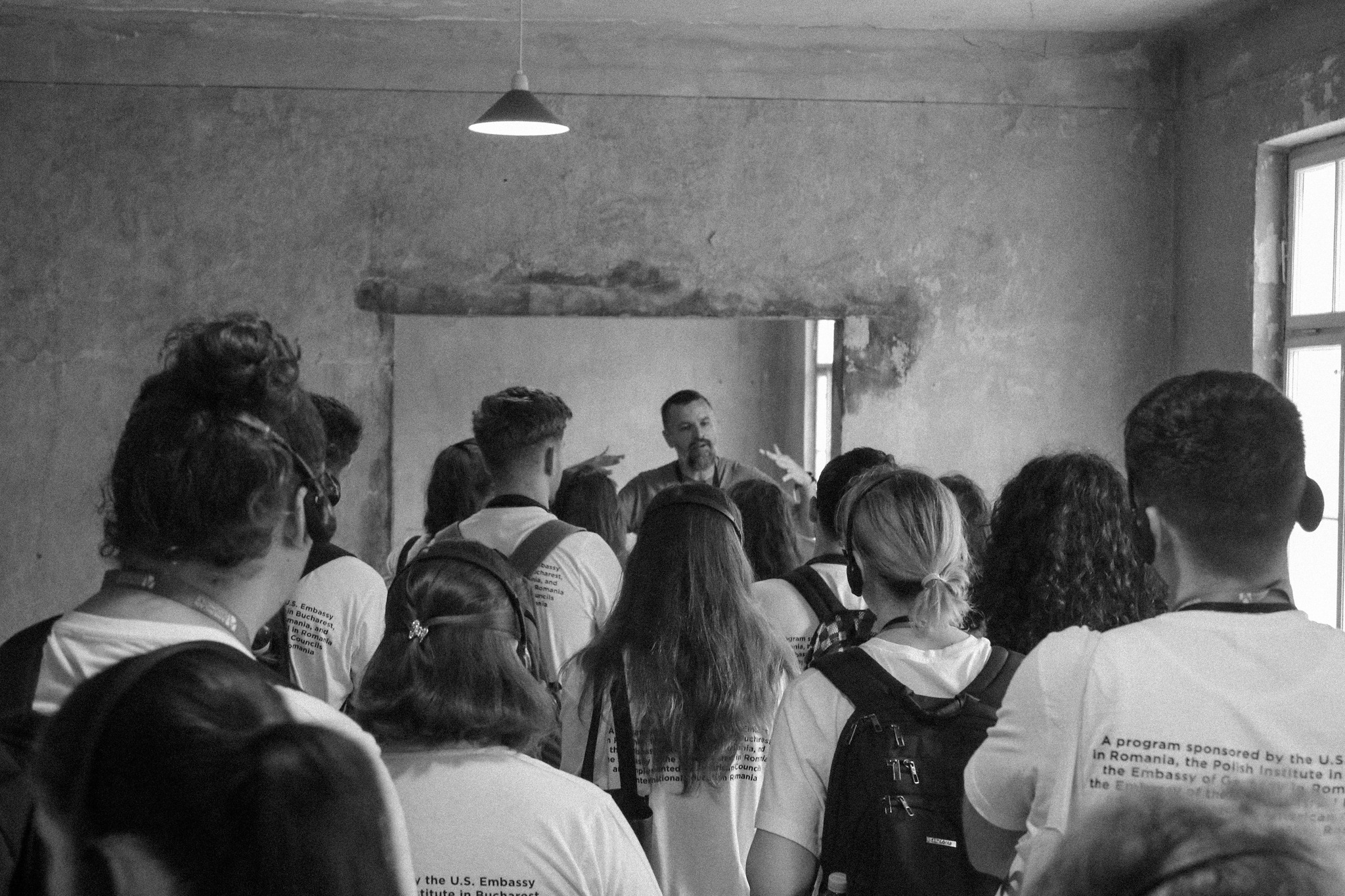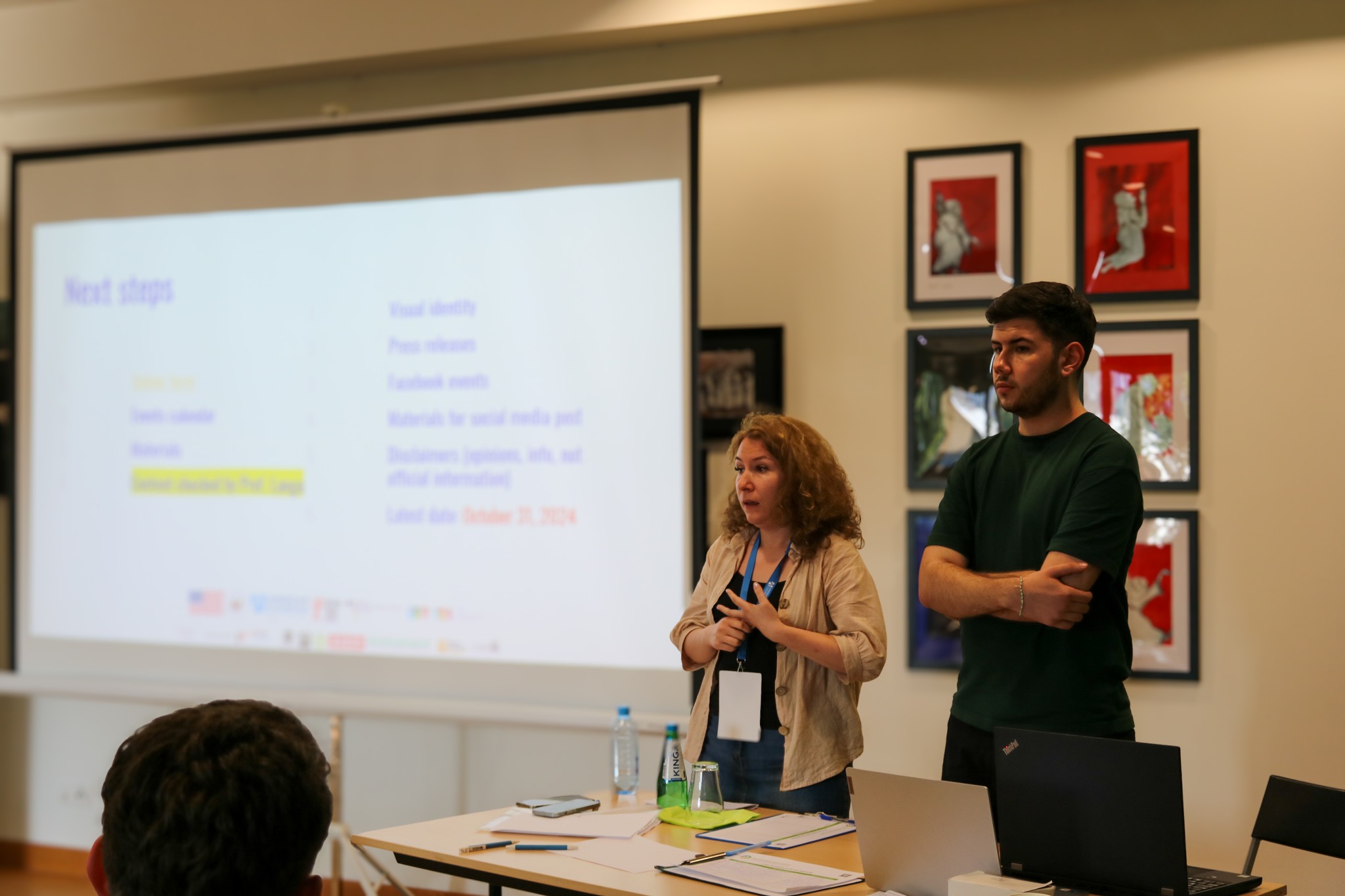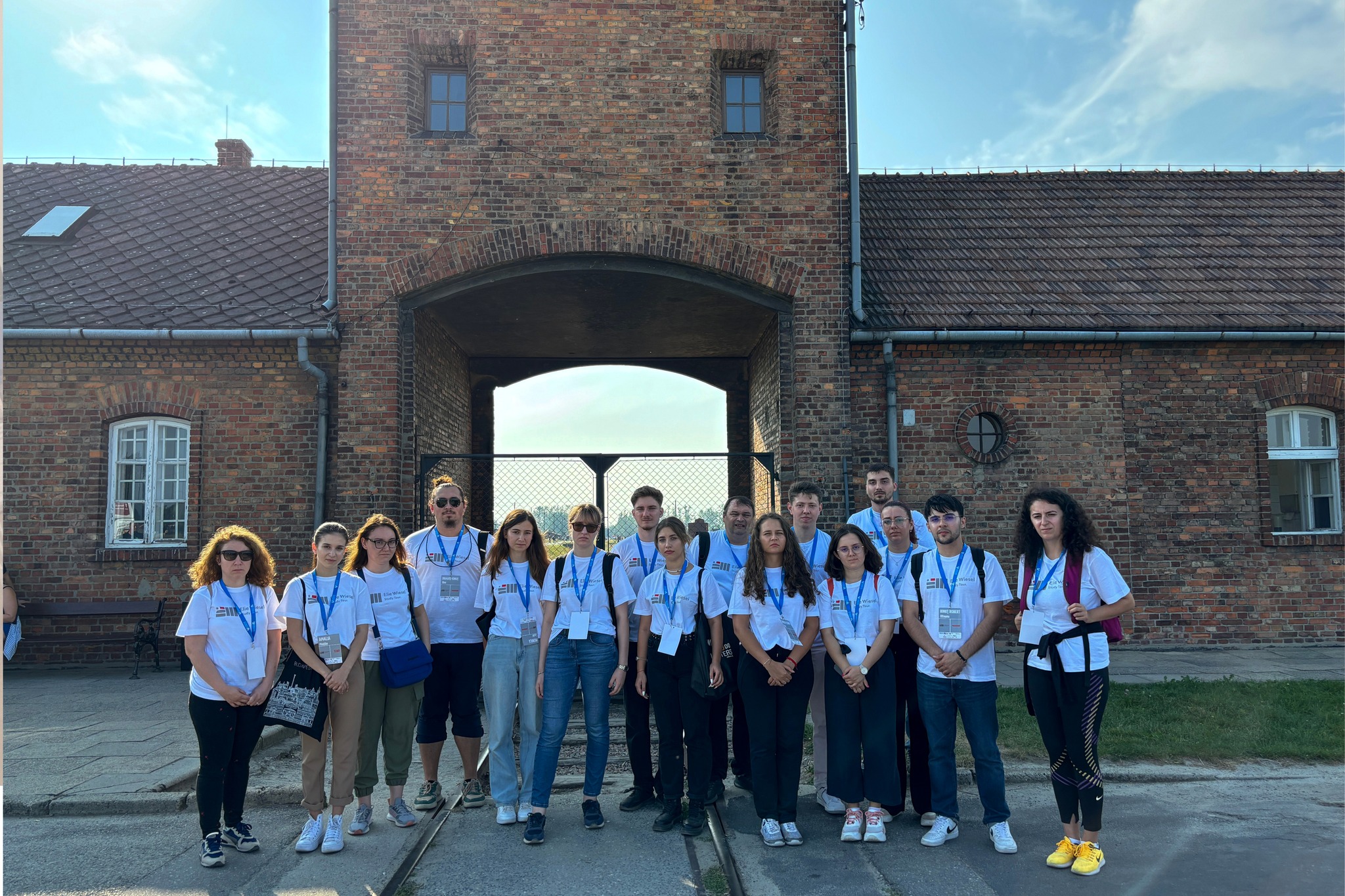In an era marked by conflict, uncertainty, and rising extremism, it is critical for young people to understand history to prevent the repetition of past tragedies. The Elie Wiesel Study Tour (EWST), administered and implemented by American Councils Romania, aims to preserve the memory of the Holocaust while educating young adults about human rights violations. This educational tour, which spans Romania, Hungary, and Poland, helps participants understand the complex political, social, and cultural forces behind the Holocaust and antisemitism.
In August, the seventh edition of the EWST offered participants a deeply transformative and emotional 10-day experience. The program commenced with an opening reception at the residence of His Excellency Peer Gebauer, Ambassador of Germany to Romania where government officials and international partners underscored the importance of Holocaust remembrance. Initial sessions in Bucharest addressed the history of antisemitism and the multifaceted forces that contributed to the Holocaust. Participants engaged with the “Name, Not Numbers” project, an initiative by the Centre for the Study of the Jewish History in Romania that educates younger generations about the Iași pogroms.
Throughout the tour, the participants visited historically significant sites across Romania, Hungary, and Poland, including the Elie Wiesel Memorial House, the Galicia Museum, Oskar Schindler's Factory, the Jewish Quarter of Budapest, and the Kazimierz Jewish Quarter in Krakow, all of which were explored through guided tour from experts. 
A particularly powerful moment was the visit to Auschwitz-Birkenau, where participants had a solemn, educational experience while exploring the barracks and memorials dedicated to the over 1.1 million men, women, and children who lost their lives there. This experience left a deep imprint on everyone, being a moment of reflection on the horrors of the past and the importance of collective memory.
Interactive workshops led by expert historians and researchers offered participants a chance to reflect on the past and present realities of genocide. At Schindler’s Factory, attendees engaged in a session titled "Why 'Never Again' Is Only 'Again': The Mechanics of Genocide." At the Auschwitz Museum Complex, the session "Questions About the Shoah" provided a platform for discussion with historians and humanitarian advocates.
 As the EWST concluded, its important influence on participants became unmistakable and reinforced the enduring significance of championing human rights. At the end of the tour, sessions were held by American Councils Romania staff, Iuniana Mîndru and Ștefan Duminică, on follow-on projects that participants will implement in their communities.
As the EWST concluded, its important influence on participants became unmistakable and reinforced the enduring significance of championing human rights. At the end of the tour, sessions were held by American Councils Romania staff, Iuniana Mîndru and Ștefan Duminică, on follow-on projects that participants will implement in their communities.
The Elie Wiesel Study Tour program is funded by the U.S. Embassy in Romania, the Polish Institute in Bucharest, the Embassy of the Federal Republic of Germany in Romania, and the Embassy of the State of Israel in Romania with the support of The National Institute for the Study of the Holocaust in Romania "Elie Wiesel," the Embassy of the Republic of Austria in Romania, the Austrian Cultural Forum Bucharest - BMEIA, OeAD-GmbH – Austria’s Agency for Education and Internationalisation, Jewish Community Center Krakow, Holocaust Memorial Center – Budapest, Elie Wiesel Memorial House, Center for the Study of the History of Romanian Jews "Wilhelm Filderman," Zizin, România Pozitivă, and Radio România Cultural.

